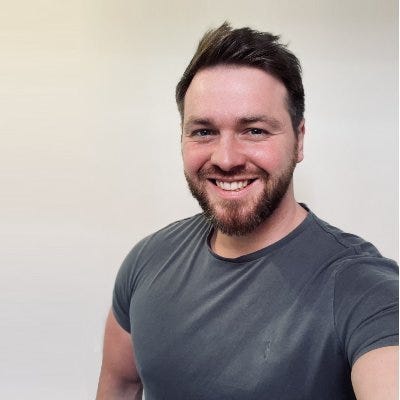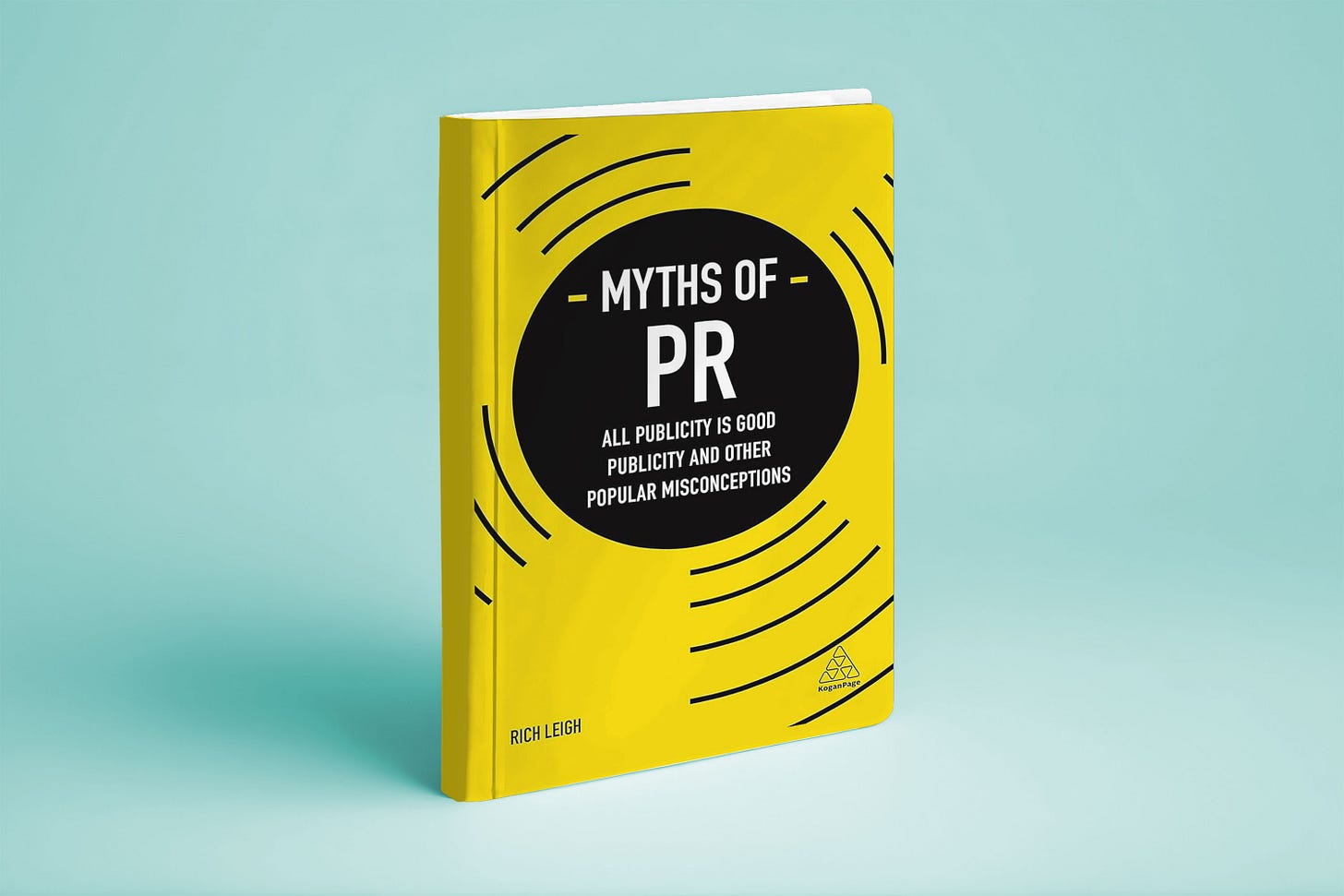Scaling Service x Rich Leigh: how I literally wrote the book on PR
Every PR has a book in them. For some, that's where it should stay. For others, read on for a handy guide on getting published...
Scaling Service is a newsletter from The Family. We interview agency founders and ask them about everything from funding to sales to exits.
This month we’ve got Rich Leigh, who’s the founder and CEO of Radioactive, and host of The Starting Line podcast.
"I always wanted to write a book. It's cool to be able to point to your book and have your kids look at it."

Rich Leigh is, in his own words, "some dickhead from Gloucester that probably should have been in prison." Fortunately for everybody, he rejected a life of crime in favour of founding Radioactive and writing the bestseller Myths of PR. You know how everybody thinks they have a book in them? Well, Rich managed to get his out.
I want to write a book. Do I need to be ‘big on Twitter’?
"I've always loved writing," he tells us. "I got into PR through an ad in the paper: that meant I always felt a little like I didn't belong, but also meant I needed to understand the business, the practice and the community. So I was writing to understand. I wrote loads of blogs. And then I created PR Examples in 2012: a huge community of people writing, celebrating the good in the industry."
Practice makes perfect, but it also makes evidence. "I very consciously built a community and an audience. Looking at it commercially, publishers could see that I was a young guy with a big following and a track record of writing. They knew I'd be committed to it."
Indeed, his publisher Kogan Page liked what they saw so much that they approached him. “You need to show agents or publishers that you've got an audience they care about. If they don't believe that you've got an audience, then it's commercially pointless. You've got to demonstrate the market advantage."
There's a paradox there, of course: you want to write a book to build your profile, but you need to have the profile first. Happily, according to Rich, "Our industry's great for that! We have so many opportunities to write and be read.”
When it comes to choosing a topic, publishers respond well to enthusiasm and a depth of knowledge. "They came to me with the idea, PR myths, and I said, 'Oh, there's so much to talk about here.' Why do clients pay us? To help them become famous. But nobody wants to see the fingerprints on the success, which leads to all these myths and misconceptions. And that got the publishers really excited. Also, if you can go to them with a full book, they love it - three chapters and a synopsis is more common."
How do I find a publisher?
When it comes to the crucial question of finding a publisher or approaching an editor: "We're talking about PR! Literally, it's PR. If you're a comms person you know this already, but there's no one correct way. It's about identifying the areas you want to write in, and the finite number of publishers that will cater to that space."
This doesn't mean limiting yourself to publishers that have previously put out books on your subject. "I probably wouldn't have sought out Kogan Page, and that would have been naivety on my part. Look at the other books in a publisher's stable, but think about their attitude to their audience. It's like identifying a media outlet for PR work: there's some discovery needed. And think seriously about the benefits of self-publishing, which will vary person to person."
So if Rich was starting this process from scratch today, where would he begin? "LinkedIn. Let's say I wanted to pitch Kogan Page, I'd look at who works there, what they're attending awards-wise, events-wise. I'd look at what they write about, what they care about, whose posts they're commenting on. And I'd build an ecosystem of understanding out from that."
Then comes the fun part. "At some stage, you have to email. Or you have to introduce yourself in person, shake that person's hand and say, 'I've got an idea.' And remember, they've heard that a hundred times. So it becomes a matter of persuasion. People buy people: you've heard it a million times, you've said it a million times, but it's the truth."

Is it worth it?
Ask Rich why he's in PR, and he'll tell you "We're here to have fun and make money." Hopefully writing the book satisfies the first part of that equation, but the second? "You have to make the time to write, you can't just find it, just like you can't accidentally build a business. And when you think about the effort of getting up at five in the morning to write for two hours before the kids wake up, about the time spent versus the commercial benefit: it's not paying off my mortgage."
The value lies elsewhere. "A nonfiction book is an 80,000 word business card. It's opened so many doors with clients, from a reputational perspective. I took a PR approach: writing the book was maybe 40% of my effort, and 60% was selling it. But the things that it's done for me: I've been paid to appear at conferences, I get emails from all around the world. Two weeks ago somebody quoted the book in relation to something, and I was able to promote that aspect of it."
And it's never too soon to start. Rich began working on the book in his late-twenties. "Of course you have all those thoughts about not being far enough in to your career. But, and this may not be a popular opinion, I don't buy imposter syndrome - or at least, that every single person 'suffers' from it. Why wouldn't the person getting their first England cap doubt themselves? They should. By caps 10, 20, 50 - they'll believe they should be in that team. That's how I see it. Self-belief is a superpower.
"It's something that everybody says they have, because it's really not cool to say 'You know, I think I deserve to be in this room.' So I told myself, they've come to me for a reason, and I believe in myself enough to make something half-decent."



